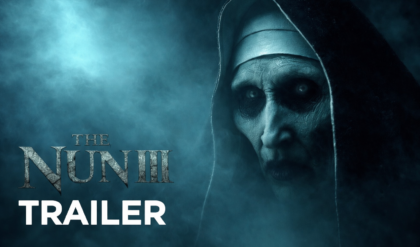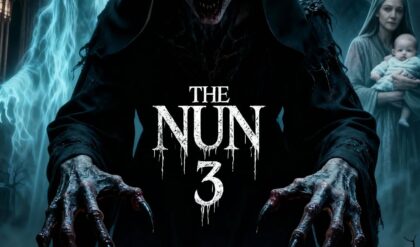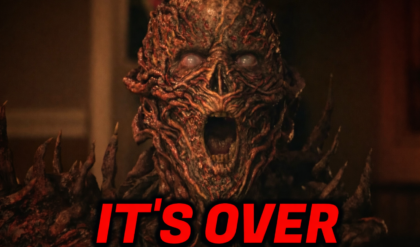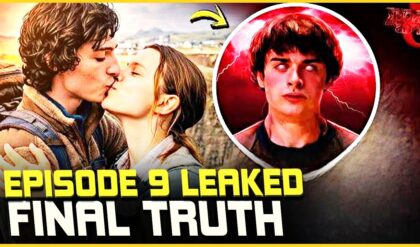On March 20, 2025, Assassin’s Creed Shadows launched with the weight of a franchise’s legacy on its shoulders—and promptly ignited a firestorm that’s threatening to engulf Ubisoft entirely. Billed as a long-awaited journey into feudal Japan, featuring dual protagonists Naoe (a shinobi) and Yasuke (a historical Black samurai), the game promised breathtaking visuals and a fresh take on the Assassin’s Creed formula. Instead, it’s being branded a “nuclear woke disaster,” with critics and fans alike accusing Ubisoft of rewriting history to appease activist agendas. Viral clips of buggy gameplay and controversial narrative choices have flooded X and YouTube, painting a picture of a game—and a company—in freefall. What went so wrong, and is this the end of Ubisoft as we know it? Let’s dive into the explosion rocking the gaming world.
A “Nuclear Woke Disaster” Unleashed
The term “nuclear woke disaster” first detonated in a March 19, 2025, YouTube video by Vara Dark, titled “Assassin’s Creed Shadows is a Nuclear Woke Disaster + Ubisoft ERASES History To Appease Activists.” With over 1.5 million views, the video slams Shadows as a betrayal of the series’ roots, pointing to Yasuke’s portrayal as a gay-friendly samurai and the game’s alleged sidelining of Japanese culture as evidence of Ubisoft’s “woke” capitulation. X posts echoed the sentiment, with hashtags like #WokeShadows and #BoycottUbisoft trending alongside clips of Yasuke’s awkward romance scenes—like his cringe-inducing line, “Your spirit is a flame that warms my soul”—and glitchy combat mishaps.
The backlash isn’t just about bugs (though those abound—think NPCs floating mid-air or Yasuke’s horse flipping upside-down). It’s a full-throated revolt against what detractors see as Ubisoft’s pandering to progressive ideals at the expense of historical fidelity. “This isn’t Japan—it’s a woke fantasy,” one X user raged, summing up a narrative that’s taken hold: Shadows is less a game than a political statement, and it’s blowing up in Ubisoft’s face. Metacritic scores hover at 82, suggesting a decent game beneath the noise, but the viral outrage tells a different story—one of a disaster too big to ignore.
Erasing History: The Yasuke Controversy
At the heart of the “woke disaster” label is Yasuke, a real figure from the 1580s who served Oda Nobunaga as a retainer—and possibly a samurai, though historians debate the title. Ubisoft’s version casts him as a towering, kanabo-wielding warrior with a tragic backstory, paired with Naoe in a quest against a fictional Shinbakufu regime. It’s a bold reimagining, but critics argue it’s a step too far, accusing Ubisoft of “erasing history” to fit a modern narrative. The inclusion of optional same-sex romances—like Yasuke’s with Ibuki, a non-binary NPC—has become the flashpoint, with X users claiming it turns a historical figure into an activist poster child.
Historians offer mixed takes. A 2024 History Today piece confirms Yasuke existed, arriving in Japan with Portuguese Jesuits and earning Nobunaga’s favor, but his samurai status is speculative—more a footnote than a legend. Ubisoft’s creative director Jonathan Dumont told IGN in May 2024, “We’re not here to teach history; we’re crafting a story.” Yet, that defense hasn’t quelled the fury. Posts on X allege that by centering Yasuke over a “traditional” Japanese lead, Ubisoft is whitewashing Japan’s own heroes—like Miyamoto Musashi or Hattori Hanzo—to appease Western activists. “They erased samurai history for DEI points,” one user wrote, a sentiment amplified by right-wing commentators like Tim Pool, who called Shadows “cultural vandalism.”
The game’s Japan feels off to some, too. Web critiques from Japanese sites like Famitsu note English-accented NPCs and anachronistic details—like Yasuke’s modernized dialogue—clashing with the setting. A viral clip of Yasuke smashing a Shinto shrine due to a physics glitch didn’t help, with X posts screaming, “This is how Ubisoft respects Japan!” Whether it’s erasure or artistic license, the perception of Shadows as a historical betrayal has stuck, fueling the “nuclear” meltdown.
Ubisoft’s Activist Appeasement: Fact or Fiction?
The claim that Ubisoft bowed to activists isn’t new. A That Park Place report from October 2024 speculated that Tencent, a major stakeholder, pushed Yasuke’s prominence to align with diversity trends, though no hard evidence supports this. Shadows’ development overlapped with broader industry shifts—think The Last of Us Part II’s queer focus or Cyberpunk 2077’s inclusivity patches—suggesting Ubisoft might have followed suit. The game’s romance system, introduced in Odyssey, was expanded here, with Ubisoft’s May 2024 blog boasting “diverse attractions” for Naoe and Yasuke. To critics, it’s proof of activist pressure; to defenders, it’s just RPG evolution.
Yet, the execution has backfired spectacularly. The Ibuki romance scene—stilted, poorly voiced, and lacking buildup—has been memed to death, with YouTube edits adding laugh tracks or captions like “Woke Ubisoft strikes again!” X users argue it’s not the gay aspect that’s the problem—Odyssey had queer options without this uproar—but the heavy-handed delivery. “If you’re gonna go woke, at least make it good,” one post quipped. Ubisoft’s July 2024 apology to its “Japanese community” for promotional missteps hinted at internal awareness, but its silence since launch suggests a company paralyzed by the blast radius.
The Viral Explosion: A Meme-Fueled Meltdown
Shadows’ woes have turned it into an internet punching bag. Clips of bugs—like Naoe falling through the map or Yasuke’s cape igniting—pair with romance flops to create a perfect storm of cringe. Channels like EndymionYT and Vara Dark rake in views with titles like “Assassin’s Creed Shadows: Woke Nuclear Fallout!” while X threads pile on with #WokeDisaster memes—think Yasuke superimposed on a rainbow flag, captioned “Stealth: 0, Agenda: 100.” The outrage has a culture-war edge, with figures like Elon Musk (who criticized Yasuke in 2024) fanning the flames, turning Shadows into a symbol of “woke gaming gone wrong.”
Japanese reaction adds fuel. While no official government outcry has emerged—contrary to X rumors of Diet debates—posts on 5ch and Nico Nico call Shadows “Hollywood nonsense,” decrying its Westernized take on Japan. “Yasuke as a gay icon? That’s not our history,” one user wrote. Whether it’s a minority view or widespread sentiment, it’s enough to keep the “erasing history” narrative alive, with Ubisoft cast as the villain.
Ubisoft’s Collapse: A Company in Crisis
The “nuclear disaster” isn’t just about Shadows—it’s about Ubisoft’s survival. The company’s stock has tanked to under €2 billion, per Reuters, after flops like Star Wars Outlaws and Skull & Bones drained its coffers. Shadows was the lifeline, but its buggy launch and polarizing story have investors fleeing—some allegedly boycotting outright, per X chatter. Rumors of a Tencent or Microsoft buyout swirl (Bloomberg, October 2024), with the Guillemot family’s control slipping as activist shareholders like AJ Investments push for a sale. “Ubisoft’s done—Shadows was the final nail,” one X user declared.
The game’s rollout hasn’t helped. Delayed twice from November 2024, it still shipped unpolished, with NPR’s March 18 review calling it “ambitious but uneven.” CEO Yves Guillemot’s pleas for fans to “enjoy” it ring hollow as clips of glitches and “woke” moments dominate discourse. A day-one patch is rumored, but the damage—financial and reputational—may be irreparable.
A Faint Glow Amid the Fallout
Not everyone’s writing Shadows off. IGN and Eurogamer praise its visuals—cherry blossoms swaying, dynamic seasons shifting—and its combat, with Yasuke’s brutality and Naoe’s stealth shining despite the bugs. “It’s a mess, but a gorgeous one,” one X user admitted, reflecting a minority willing to look past the disaster label. Sales will tell the tale, but with pre-orders lagging behind Valhalla (per Ubisoft’s Q3 2025 report), the outlook is grim.
Conclusion: A Blast Too Big to Contain?
Assassin’s Creed Shadows aimed to redefine the franchise with bold choices—a Black samurai, queer romances, a Japanese epic. Instead, it’s a “nuclear woke disaster” in the eyes of many, a symbol of Ubisoft’s alleged surrender to activists and neglect of history. The “erasing history” charge is hyperbolic—Assassin’s Creed has always bent facts—but the execution, from buggy code to tone-deaf writing, has handed critics a megaphone. Japan’s discontent, real or exaggerated, only deepens the wound.
For Ubisoft, this isn’t just a game’s failure—it’s an existential crisis. Investors are bailing, buyout talks loom, and a once-loyal fanbase is fractured. Shadows might patch its bugs, but the “woke” label and viral backlash could linger like radioactive fallout. As one X post put it: “Ubisoft didn’t just drop the ball—they nuked it.” Whether the company rebuilds or crumbles, this disaster’s shockwaves will echo for years.





